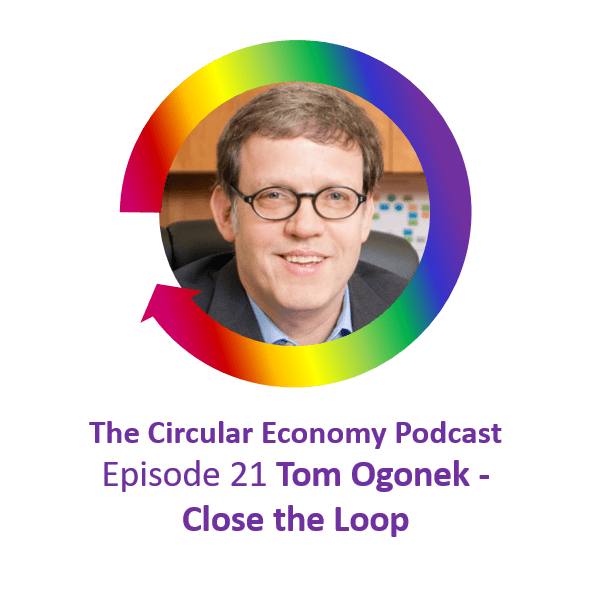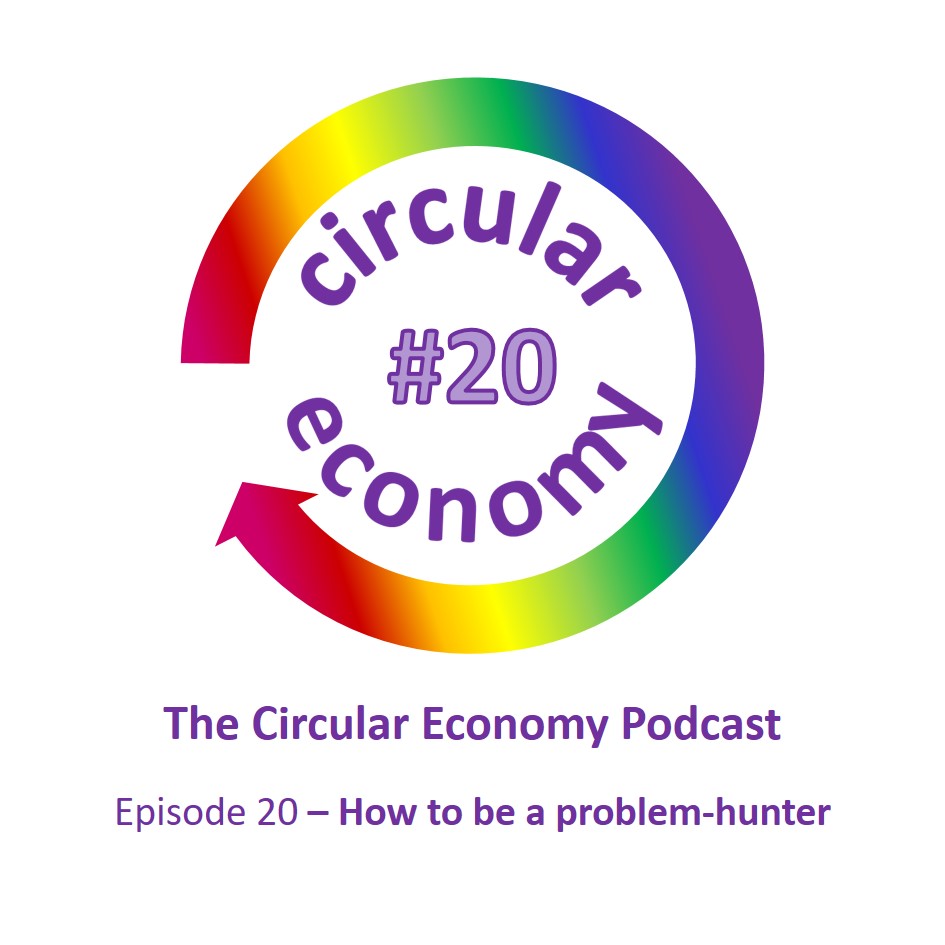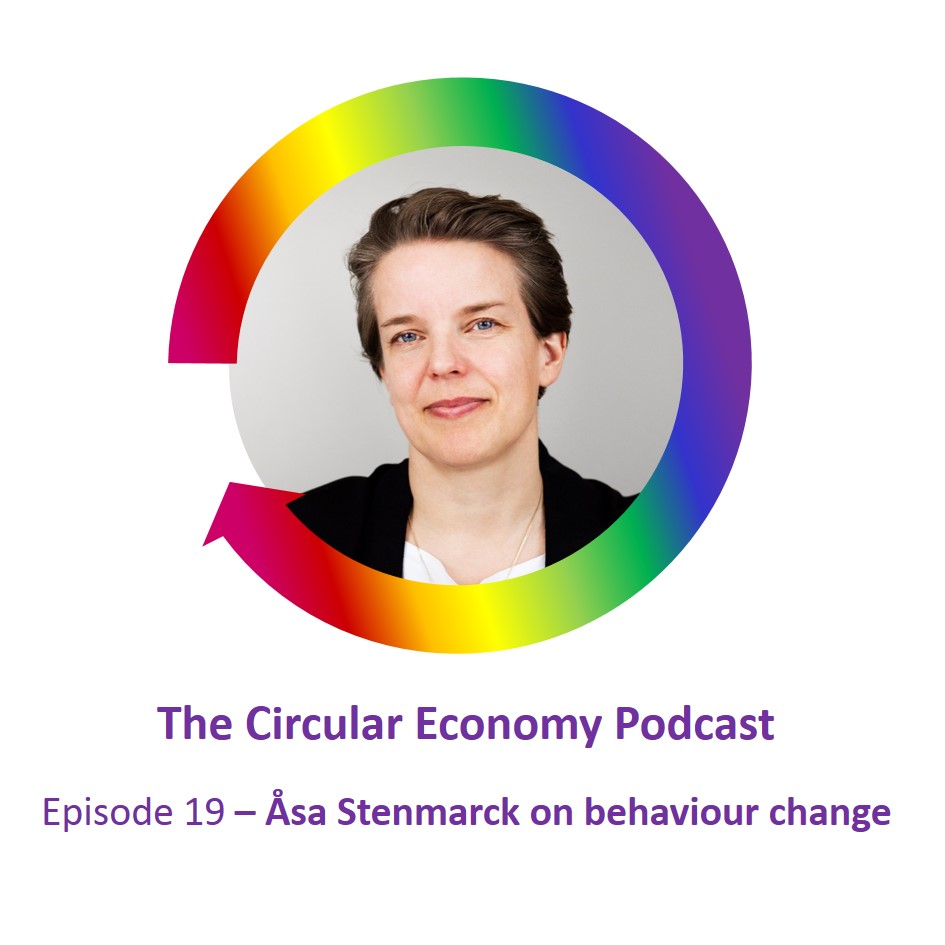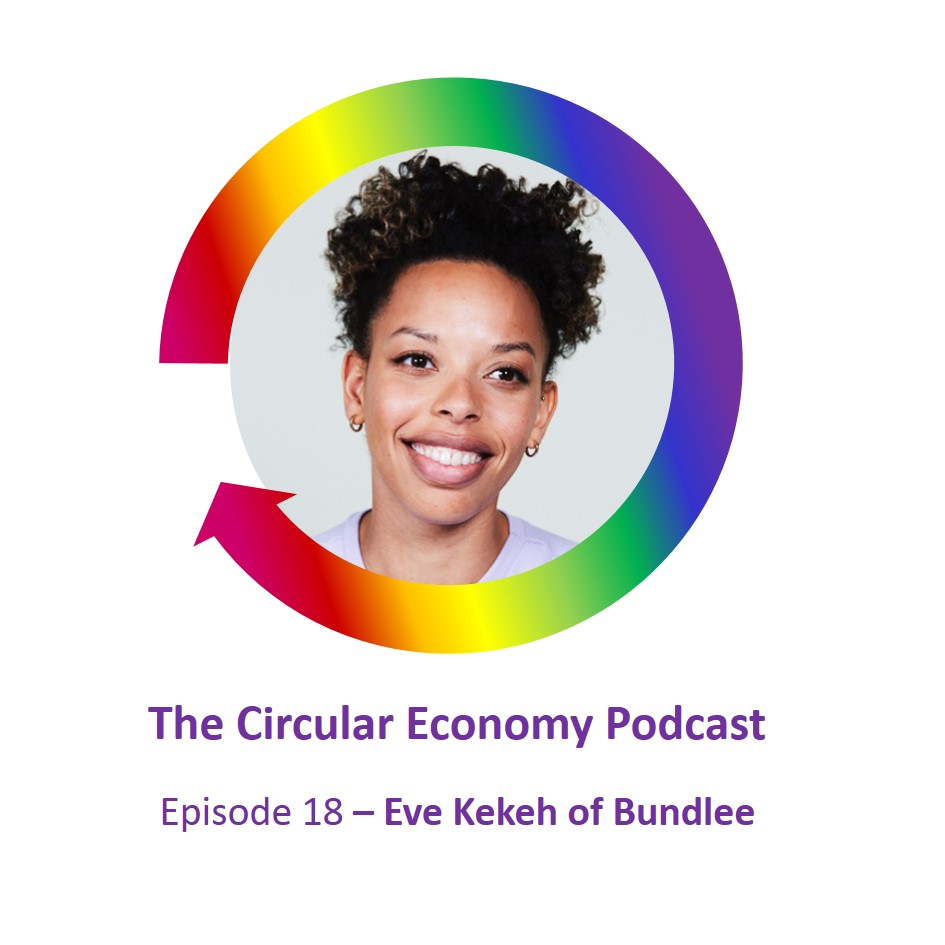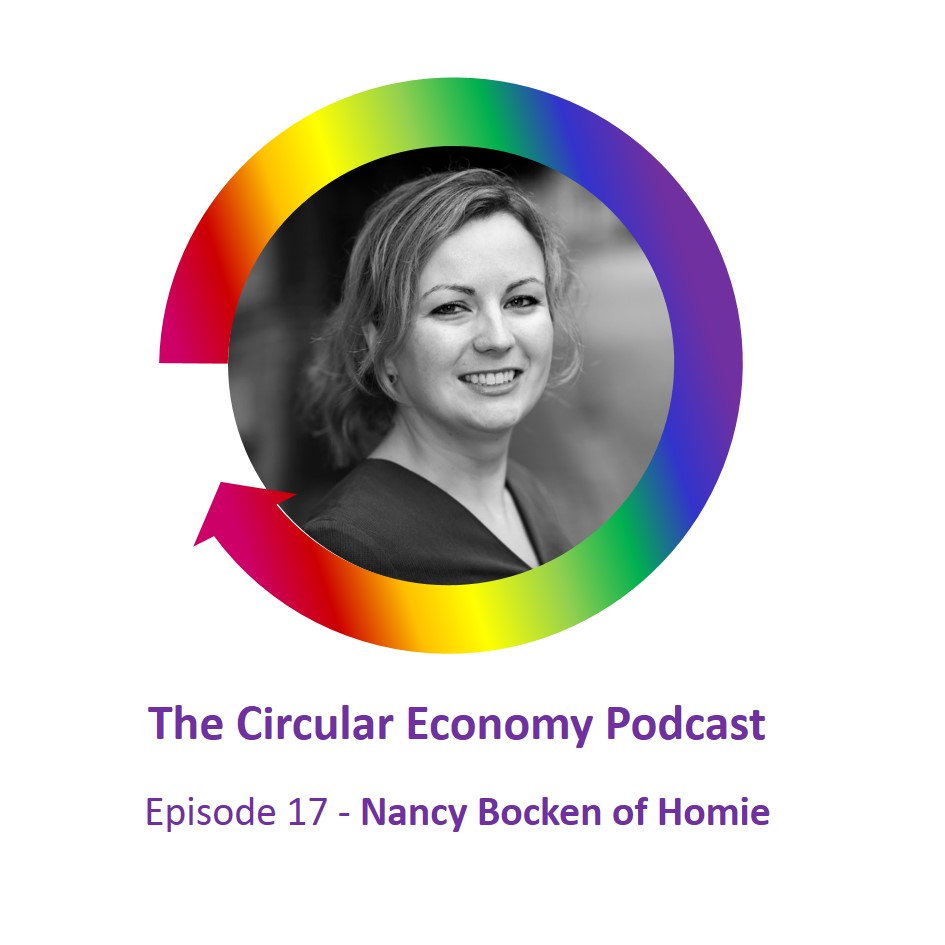Podcast: Play in new window | Download
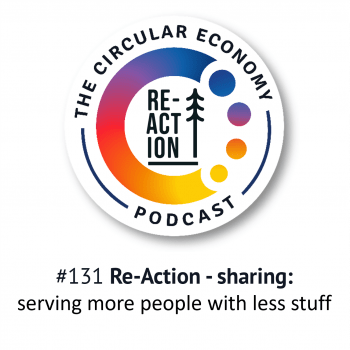
This is #2 in the 5th Anniversary mini-series featuring the Re-Action Collective focuses on sharing and ‘pay to use’.
We hear from the founders of three startups enabling people to have convenient and affordable access to high-quality outdoor gear: Anna Smoothy from Cirkel Supply, Rebecca Heaps from Tentshare and Bruce Leishman from KitUp Adventures.
The title of this episode – serving more people with less stuff – was inspired by Anna Smoothy at Cirkel Supply. I loved their aim, to serve more people with less products. and that aligns with one of my favourite phrases at the moment, about the need for businesses to do better, with much less.
Sharing and ‘pay to use’ systems are one of the 3 key CE strategies that I encourage businesses to focus on. Sharing can be a catch-all term for commercial arrangements that make it easy to use something for a short period, rather than owning it. These systems can help organisations to serve other organisations, to serve individuals, or for people to serve other users.
For decades, we’ve been happy to rent houses, holiday accommodation, cars, skis and bicycles, movies and more – and now people are branching out into other categories. Rental and subscription services are popping up for technology, fashion and accessories, home appliances, furniture and more, avoiding the need to buy things you aren’t sure you’ll want to use over the long term.
Often, these are disruptive startups using online platforms to provide convenient, flexible ways to access high-quality brands at affordable prices.
Sharing is really coming to the forefront, in particular for younger people who want access to the stuff they need and see ownership as a burden, not a benefit.
Global revenue growth for sharing and renting is forecast to grow at 30% each year, and is key to helping us do much more, with much less. In other words, we get more use – or productivity – from underutilised assets – meaning we need fewer of them in the overall system. This is sometimes referred to as ‘decoupling’*.
*The UN defines Absolute Decoupling as “a situation in which resource productivity grows faster than economic activity (GDP) and resource use is absolutely declining.”
International speaker, author and strategic advisor, Catherine Weetman helps people discover why circular, regenerative and fair solutions are better for people, planet – and prosperity.
Catherine’s award-winning book: A Circular Economy Handbook: How to Build a More Resilient, Competitive and Sustainable Business includes lots of practical examples and tips on getting started.
Stay in touch for free insights and updates…
Read on for more on our guest and links to the people, organisations and other resources we mention.
Don’t forget, you can subscribe to the podcast series on iTunes, Google Podcasts, PlayerFM, Spotify, TuneIn, or search for “circular economy” in your favourite podcast app. Stay in touch to get free insights and updates, direct to your inbox…
You can also use our interactive, searchable podcast index to find episodes by sector, by region or by circular strategy. Plus, there is now a regular Circular Economy Podcast newsletter, so you get the latest episode show notes and links delivered to your inbox on Sunday morning, each fortnight. The newsletter includes a link to the episode page on our website, with an audio player. You can subscribe by clicking this link to update your preferences.
Links we mention in the episode:
Catherine’s work:
- Circular Economy Podcast on LinkedIn: linkedin.com/showcase/circular-economy-podcast/
- Circular Economy Podcast website: circulareconomypodcast.com
- Catherine Weetman on LinkedIn: https://www.linkedin.com/in/catherine-weetman-9419107/
- A Circular Economy Handbook: How to Build a More Resilient, Competitive and Sustainable Business – buy from any good bookseller, or direct from the publisher Kogan Page, which ships worldwide (free shipping to UK and US) https://www.koganpage.com/CircEcon2
- Interactive podcast index https://www.rethinkglobal.info/circular-economy-podcast-index/
- Rethink Global www.rethinkglobal.info
- Sign up to get the podcast player and shownotes for each new episode emailed to your inbox
Links for our guests:
Cirkel Supply
- Cirkel Supply website: https://www.cirkelsupply.com/
- Cirkel Supply on Instagram https://www.instagram.com/cirkelsupply
- Cirkel Supply on LinkedIn https://www.linkedin.com/company/cirkelsupply/
KitUp Adventures
- KitUp website https://kitupadventures.com/
- Instagram: https://www.instagram.com/kitupadventures/
- Facebook: https://www.facebook.com/KitUpAdventures
- Bruce Leishman on LinkedIn https://www.linkedin.com/in/bruce-leishman-1b11bb84/
Tentshare
- Email: hello@tentshare.co.uk
- Website: https://www.tentshare.co.uk/
- https://www.instagram.com/tent_share/
- https://www.facebook.com/tentshare.co.uk
- https://twitter.com/Tentshare1
- Alexis Hindle (software guy), Instagram: https://www.instagram.com/loopadventures/ Website: https://in-the-loop.co/
- Eamonn Galvin founder of Know Carbon Website: https://knowcarbon.com/
- Tentshare element: https://knowcarbon.com/tentshare
- Camplight website: https://camplight.co.uk/
- Camplight Instagram: https://www.instagram.com/camplighttents/
Re-Action Collective
- Re-Action Collective website: https://re-action-collective.org/
Re-Action Collective on Instagram: https://www.instagram.com/re_action_collective/ - Re-Action Collective on LinkedIn: https://www.linkedin.com/company/re-action-collective/
Podcast episodes on sharing and purchasing habits
- Episode 101 Circular is better for people, planet and profit! https://www.rethinkglobal.info/101-circular-is-better-for-people-planet-and-profit/
- Episode 124 Share Shed: the world’s first travelling library of things https://www.rethinkglobal.info/124-share-shed-the-worlds-first-travelling-library-of-things/
- Episode 106 Yael Shemer of Tulu – everyday essentials on-demand https://www.rethinkglobal.info/106-yael-shemer-of-tulu-everyday-essentials-on-demand/
- Episode 105 Gene Homicki – getting more from less with MyTurn https://www.rethinkglobal.info/105-gene-homicki-getting-more-from-less-with-myturn/
- Episode 37 – Lieke van Kerkhoven of FLOOW2 Healthcare https://www.rethinkglobal.info/episode-37-lieke-van-kerkoven-of-floow2/
- Episode 28 Chris Diplock – The Thingery https://www.rethinkglobal.info/episode-28-chris-diplock-the-thingery/
- Episode 27 Chris Hellawell – Edinburgh Tool Library https://www.rethinkglobal.info/episode-27-chris-hellawell-edinburgh-tool-library/
- Trojan Electronics research on refurbishment purchasing habits https://www.rethinkglobal.info/117-james-rigg-a-refurbishment-revolution-for-electricals/
Guest bios
Rebecca Heaps of Tentshare
Rebecca Heaps, founder of Tentshare, is on a mission to make camping and the outdoors more affordable and accessible for all. With a passion for community and sharing, she created Tentshare, an online sharing platform. Here, people can share their tents and camping equipment, creating income for campers and providing affordable access to camping gear.
She is also a Director of the Camplight Cooperative and helps to run the family property development business. Camplight rescues tents abandoned at festivals, cleans and repairs them, and rents them back to festival-goers at an affordable price.
Anna Smoothy of Cirkel Supply
Anna is the co-founder of the Swiss circular business, Cirkel Supply Co. As an ex-competitive freeride skier, and ski industry expert, Anna lives and breathes alpine culture. Over the past decade, Anna has worked with top outdoor brands: from leading marketing at Faction Skis, to team management at Mons Royale.
In 2022, while finishing her MBA, Anna focused her final project on circular business – investigating the sustainability of skiwear rental, using Cirkel as a case study. Upon completing the project, Anna joined Cirkel as a co-founder and now spends her days leveraging Cirkel’s convenient and accessible skiwear rental service to help ski tourists buy less, use more, and go explore.
Cirkel Supply specialises in premium skiwear rental. Their wide assortment offers nine top brands, and caters to women, men, and children of all ages. To drive a consumer shift from linear to circular, Cirkel focuses on making rental of high quality and ultimate convenience: customers simply order their favourite outfit online, and Cirkel deliver directly to their hotel or accommodation in the Swiss Alps.
Bruce Leishman of KitUp
Prior to building KitUp, Bruce served as an Officer in the British Army. As a skiing and mountaineering instructor, he was able to take groups of soldiers away each winter and open their eyes to adventure in the mountains. Having experienced firsthand how difficult it can be to travel with all of the equipment you need and how expensive it is to buy, he asked himself what a better solution would be? This was the birth of KitUp – the idea that anyone can rent to or from anyone else, whatever their adventure. He has loved watching this sharing community grow and help each other out when it comes to equipment access.
KitUp is Europe’s only marketplace dedicated to sports equipment. It has never been easier to buy, sell or rent the gear you need, in a sustainable and affordable way. Whether you are looking to sell a mountain bike or rent a surfboard for the weekend, we are here for you! The KitUp community is free to join and we encourage all passionate adventurers to list their gear and help others enjoy the great outdoors.
Playlist: getting started with the circular economy…
Want to know more about the what the circular economy really is, and how it can help your business? Here’s a playlist to help you get to grips with the concept, how it creates value, and the common myths (spoiler alert – it’s much more than recycling!)
- #1 What is the circular economy: A quick intro to explain what the circular economy is and why it’s important. We explore how it helps create better products and services, and at the same time helps to make a better world. I break it down into my 5 circular economy components, helping you think about each part of your business.
- #2 The linear economy and your risk checklist: We dig a bit deeper into the way we do business now, the linear economy, and why that’s creating problems for business, society and our living planet. Also, we’ll look at the risks that emerge from those big-picture issues, and how they might affect your organisation.
- #90 Does circular mean it’s sustainable? Catherine Weetman is worried that companies are using circular economy solutions to grow their business (and their footprints).
- #101 Circular is better for people, planet and profit! How three simple strategies can help you get started with circular and regenerative solutions that are better for people, planet and profit.
- #120 Priorities are changing: people find life is better when we care for and share things – circular economy strategies make that better for business, too.
And here’s Catherine’s guide: What is the circular economy?
Want to dig deeper?
Why not buy Catherine’s award-winning book, A Circular Economy Handbook: How to Build a More Resilient, Competitive and Sustainable Business. This comprehensive guide uses a bottom-up, practical approach, and includes hundreds of real examples from around the world, to help you really ‘get’ the circular economy. Even better, you’ll be inspired with ideas to make your own business more competitive, resilient and sustainable.
Please let us know what you think of the podcast – and we’d love it if you could leave us a review on iTunes, or wherever you find your podcasts. Or send us an email…
Please let us know what you think of the podcast – and we’d love it if you could leave us a review on iTunes, or wherever you find your podcasts. Or send us an email…
Podcast music
Thanks to Belinda O’Hooley and Heidi Tidow, otherwise known as the brilliant, inventive and generous folk duo, O’Hooley & Tidow for allowing me to use the instrumentals from the live version of Summat’s Brewin’ as music for the podcast. You can find the whole track (inspired by the Copper Family song “Oh Good Ale”) on their album, also called Summat’s Brewin’. Or, follow them on Twitter.
